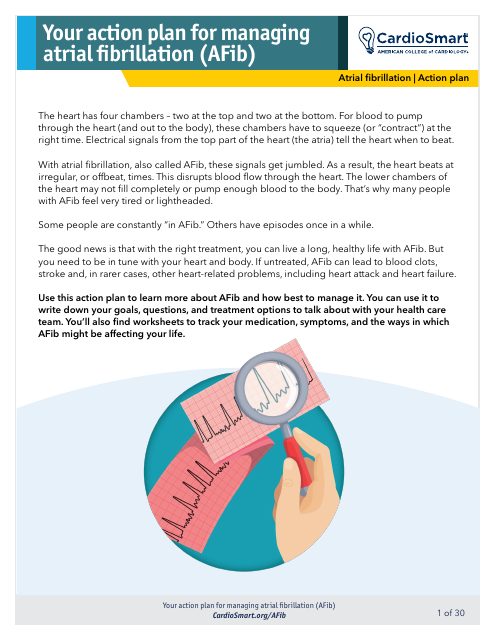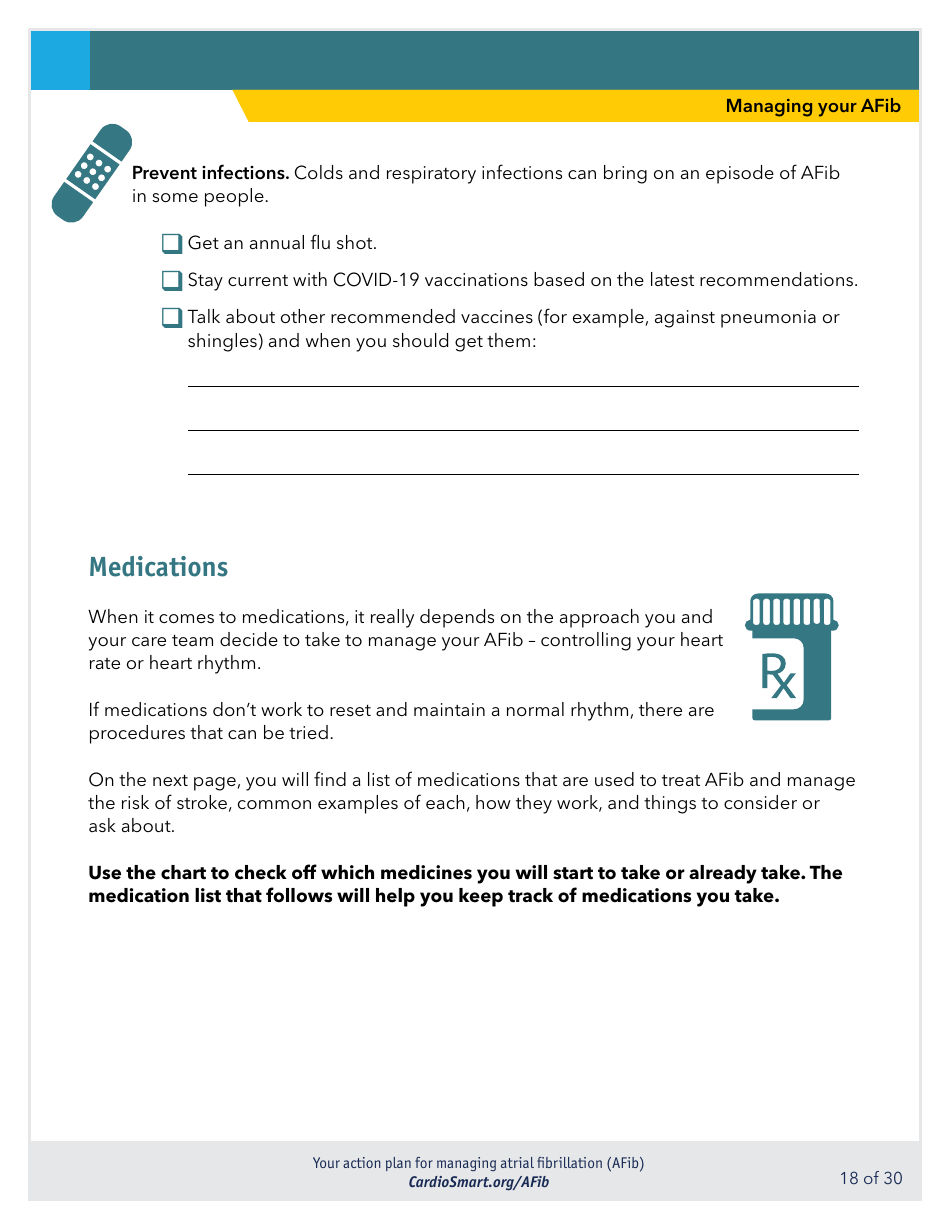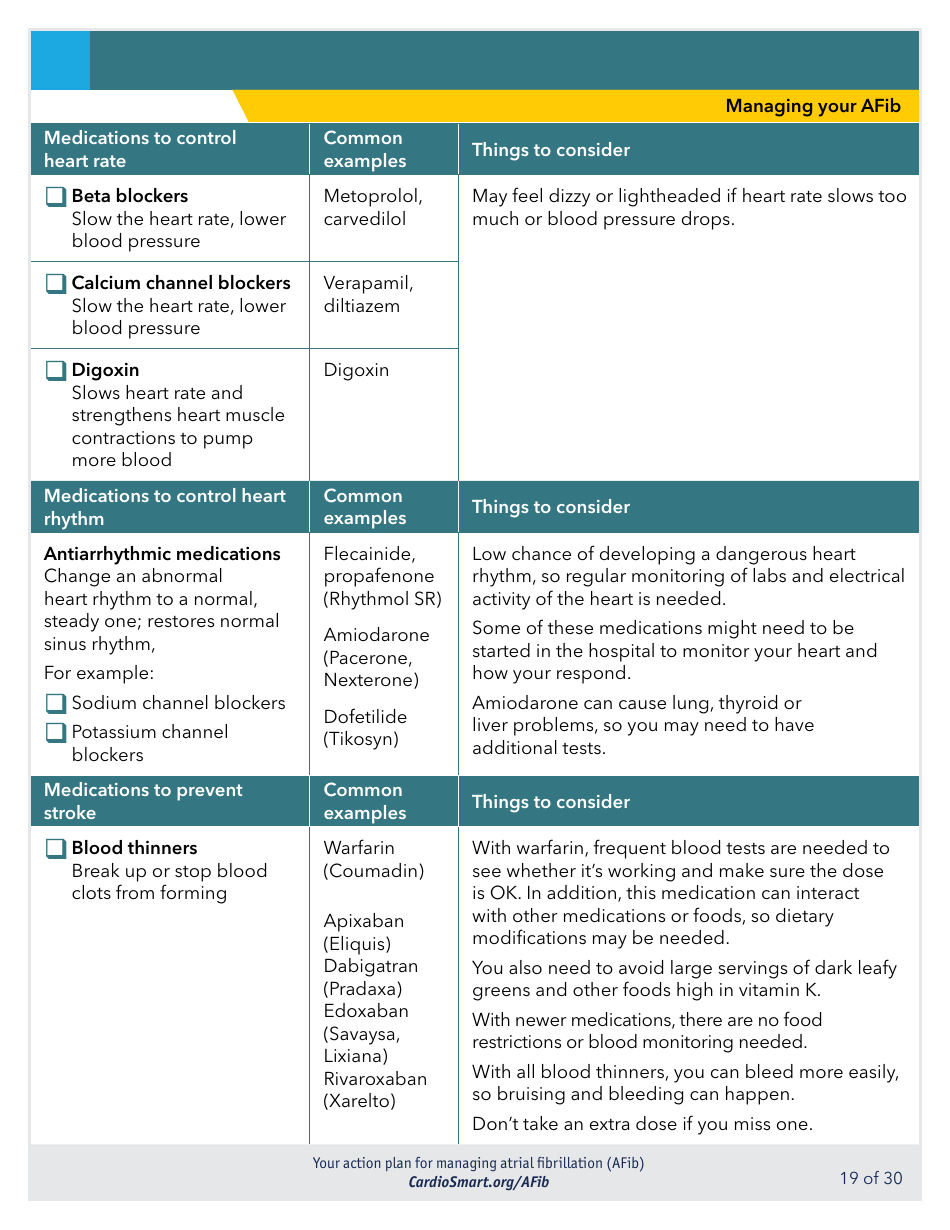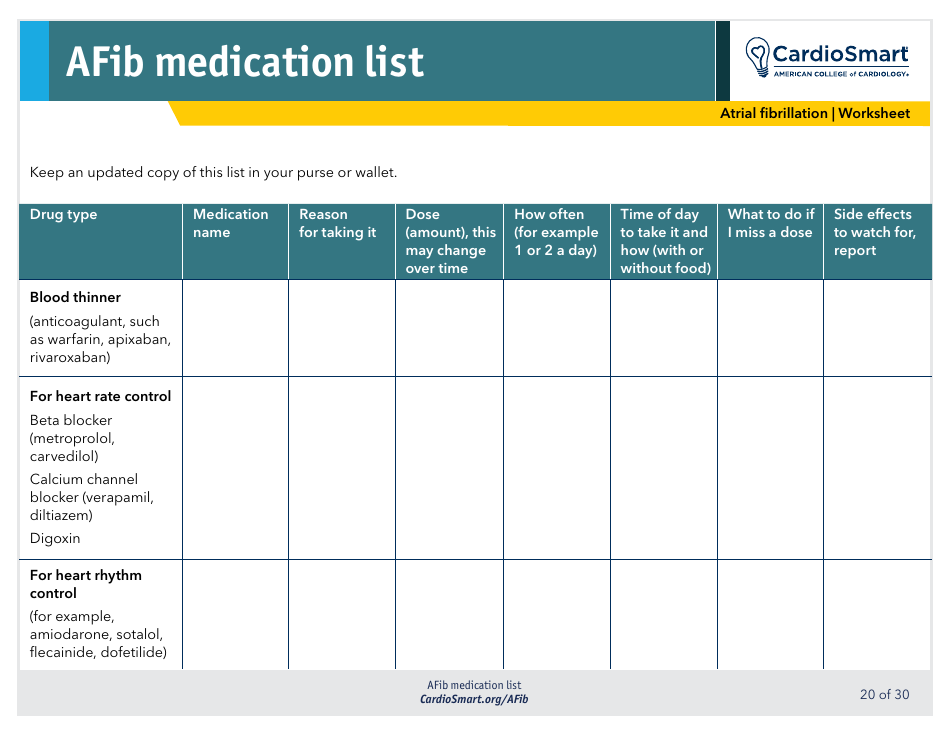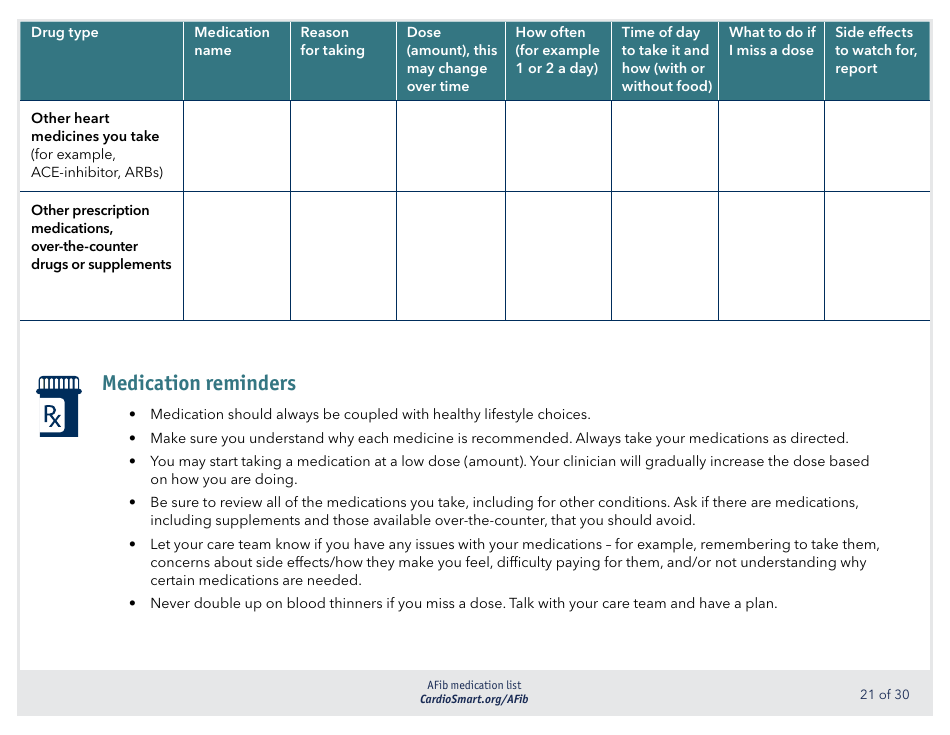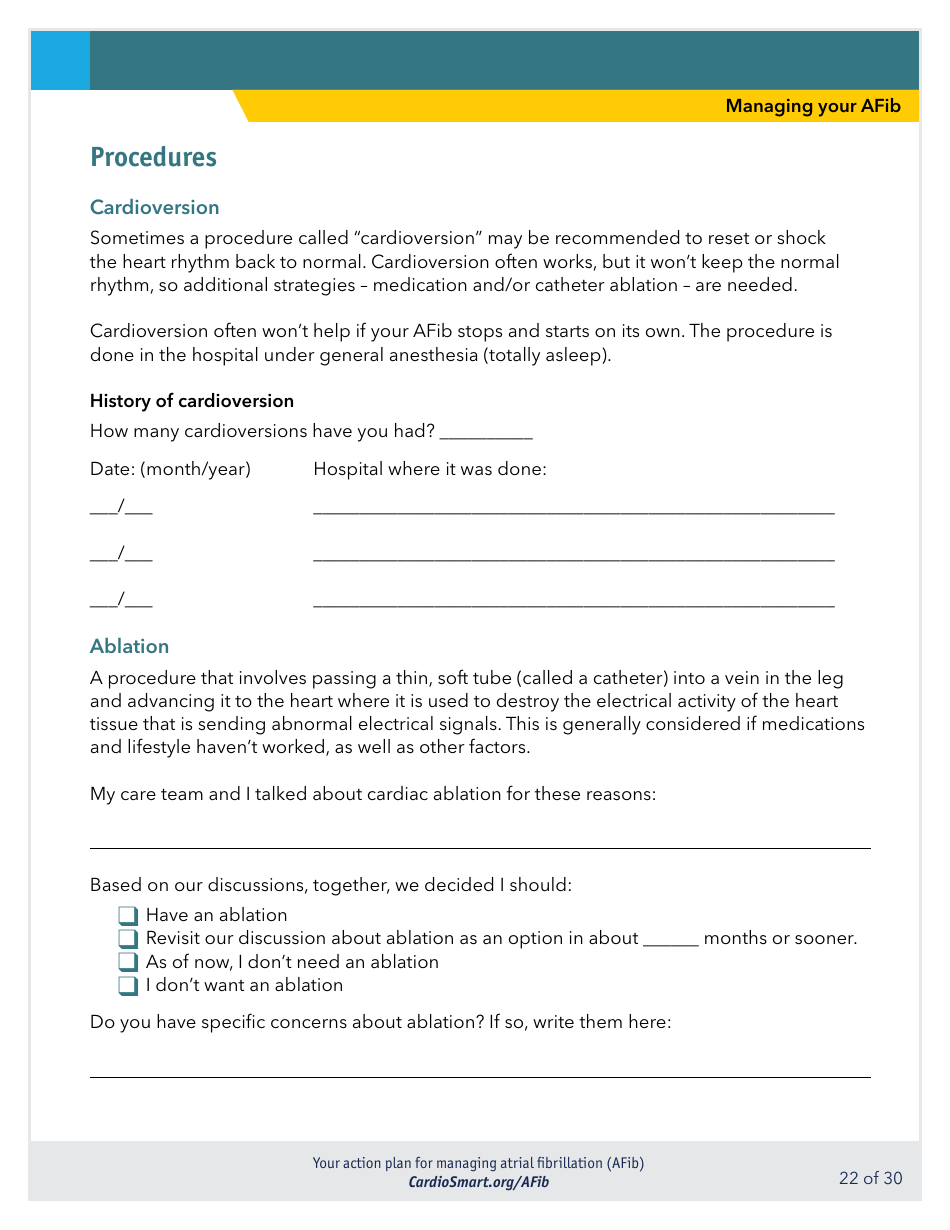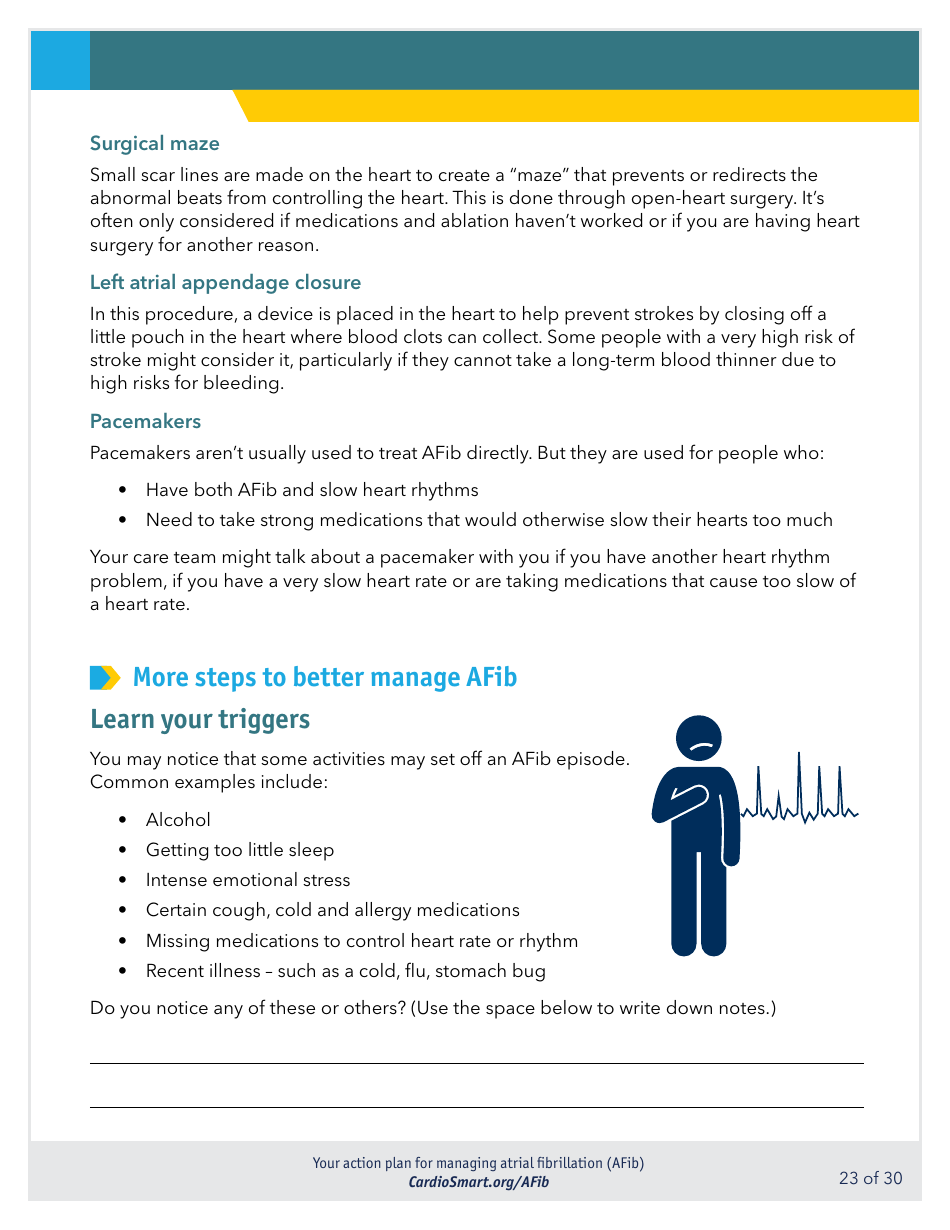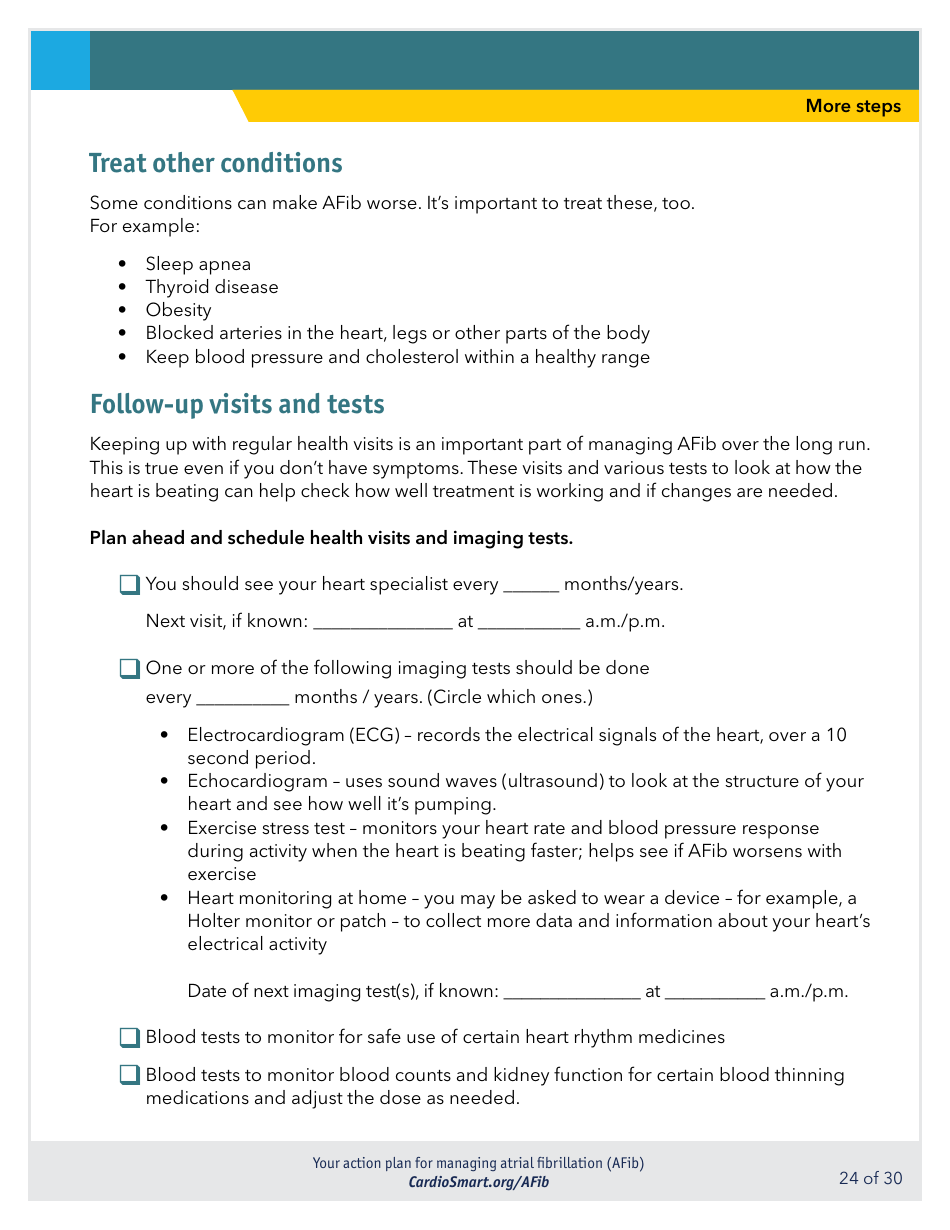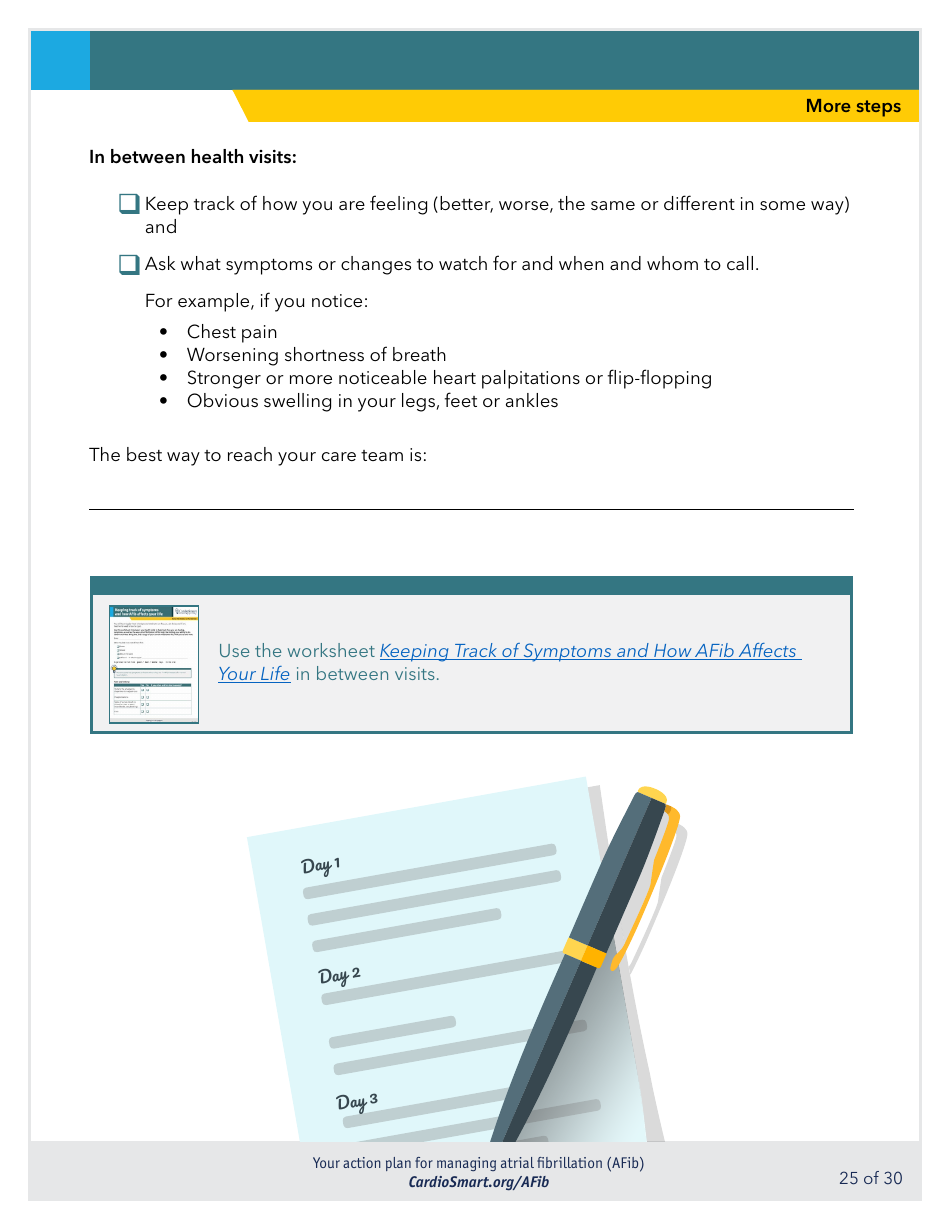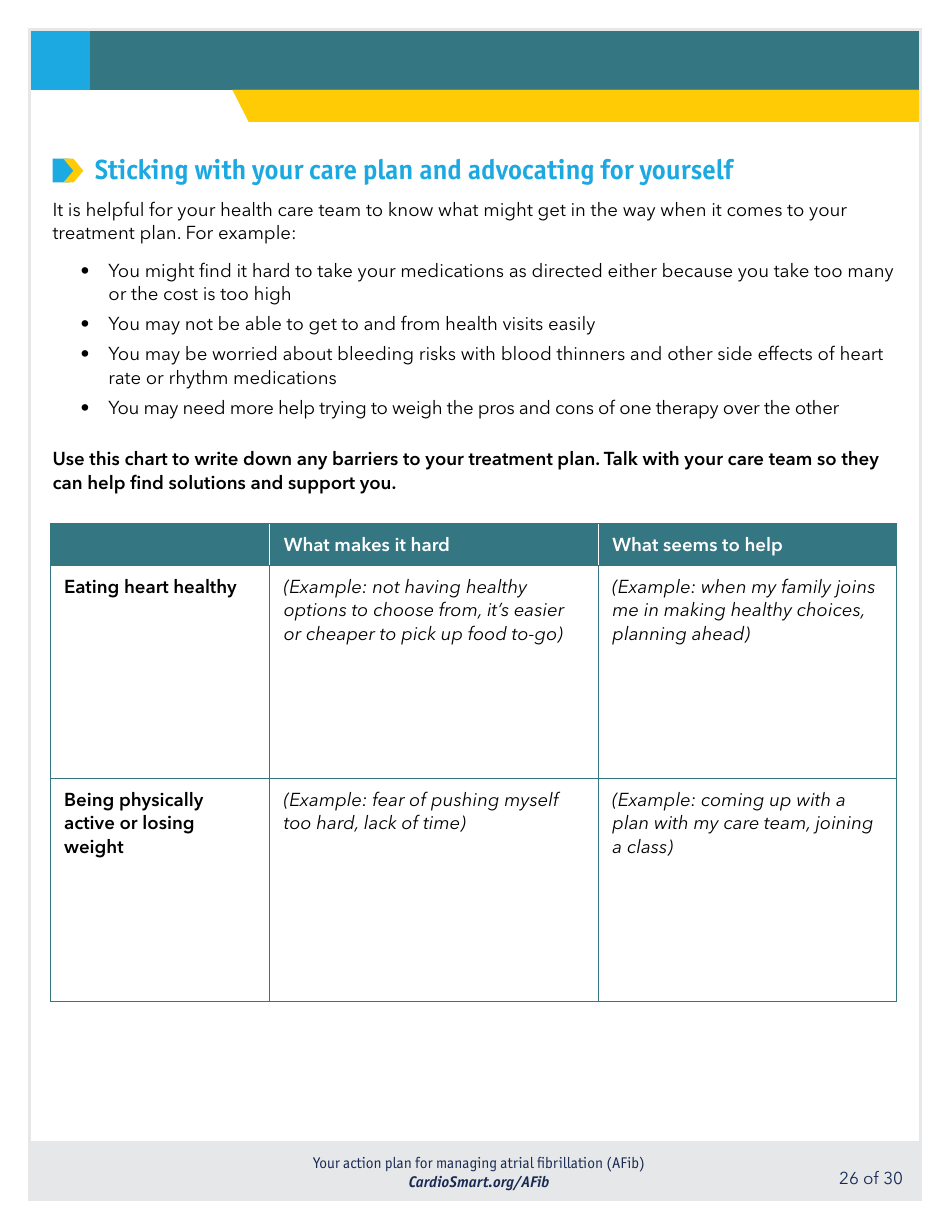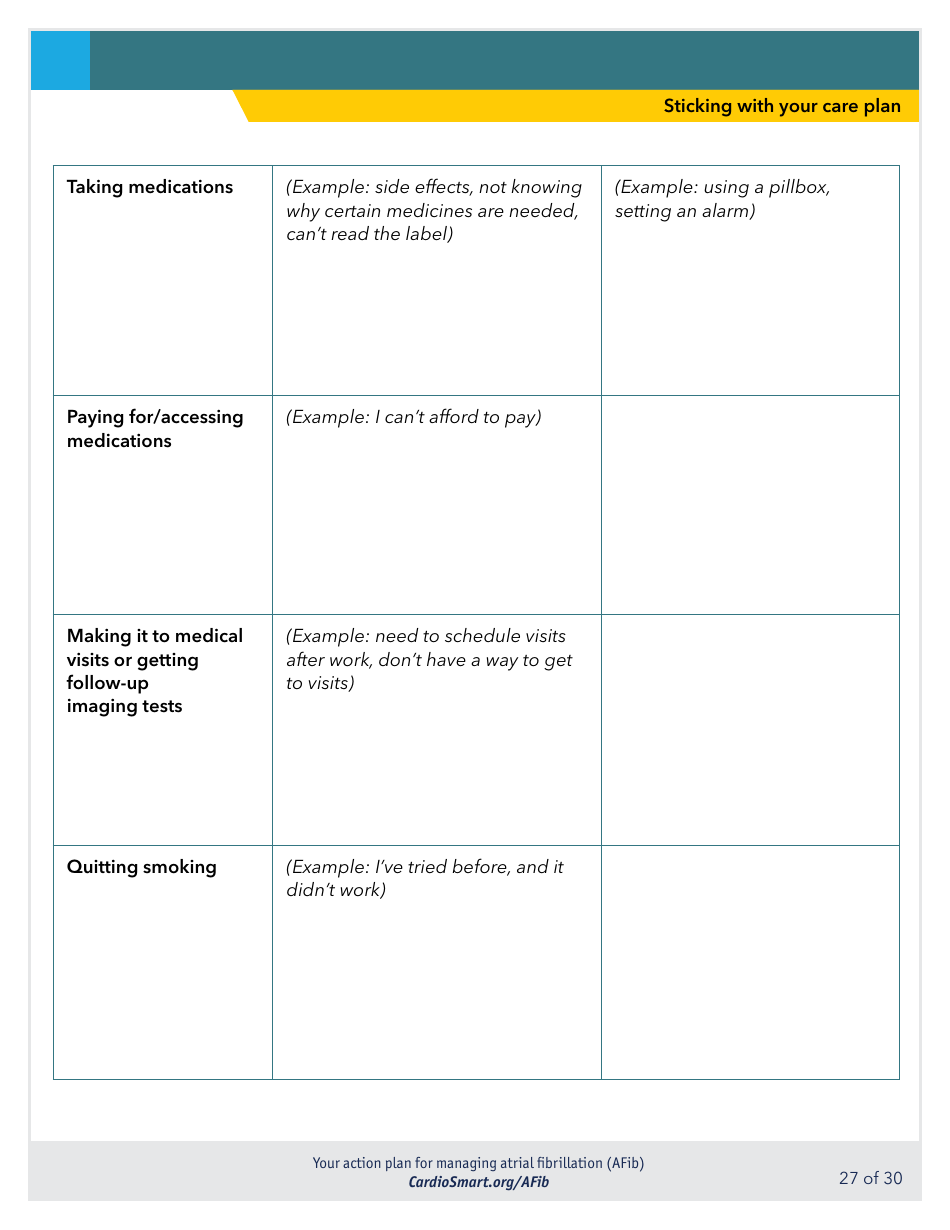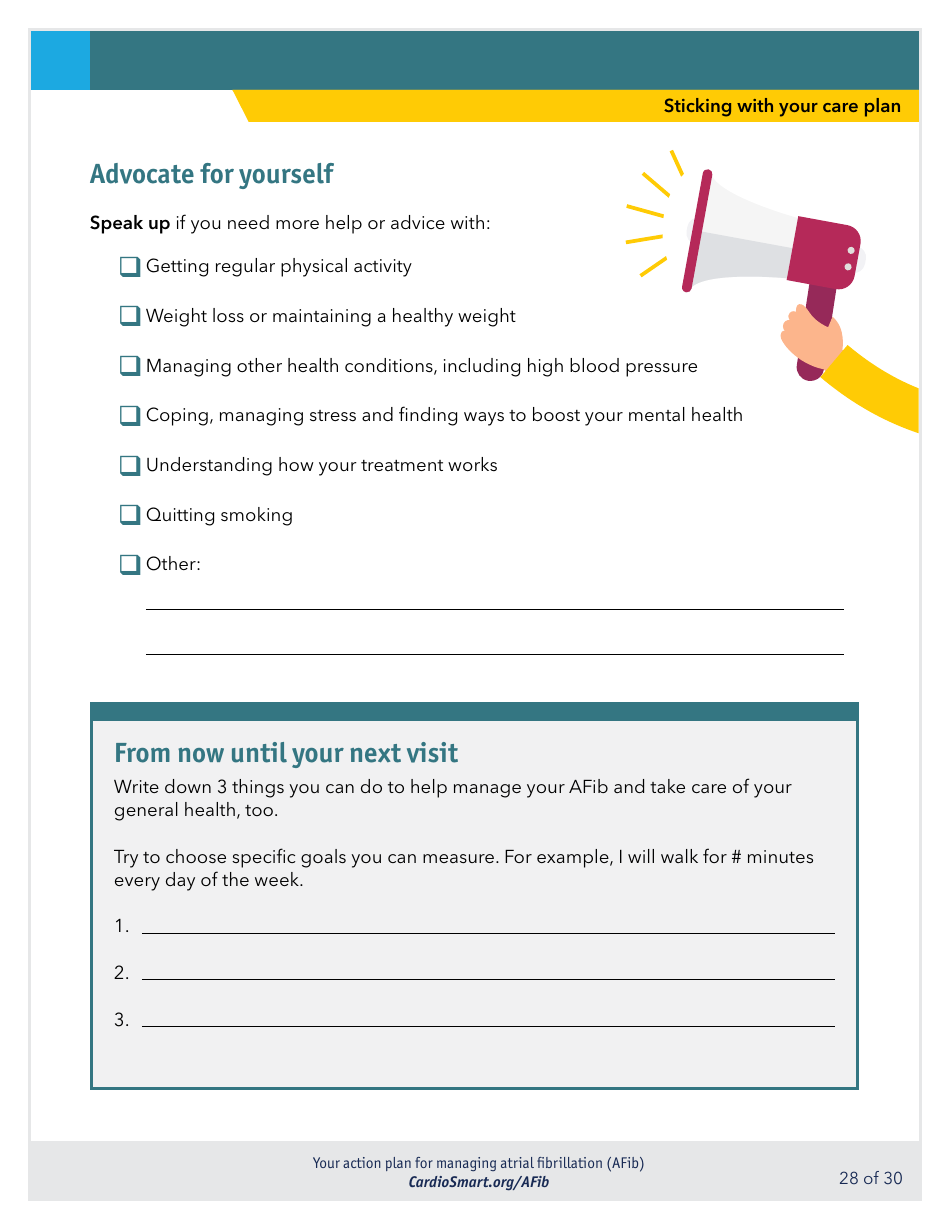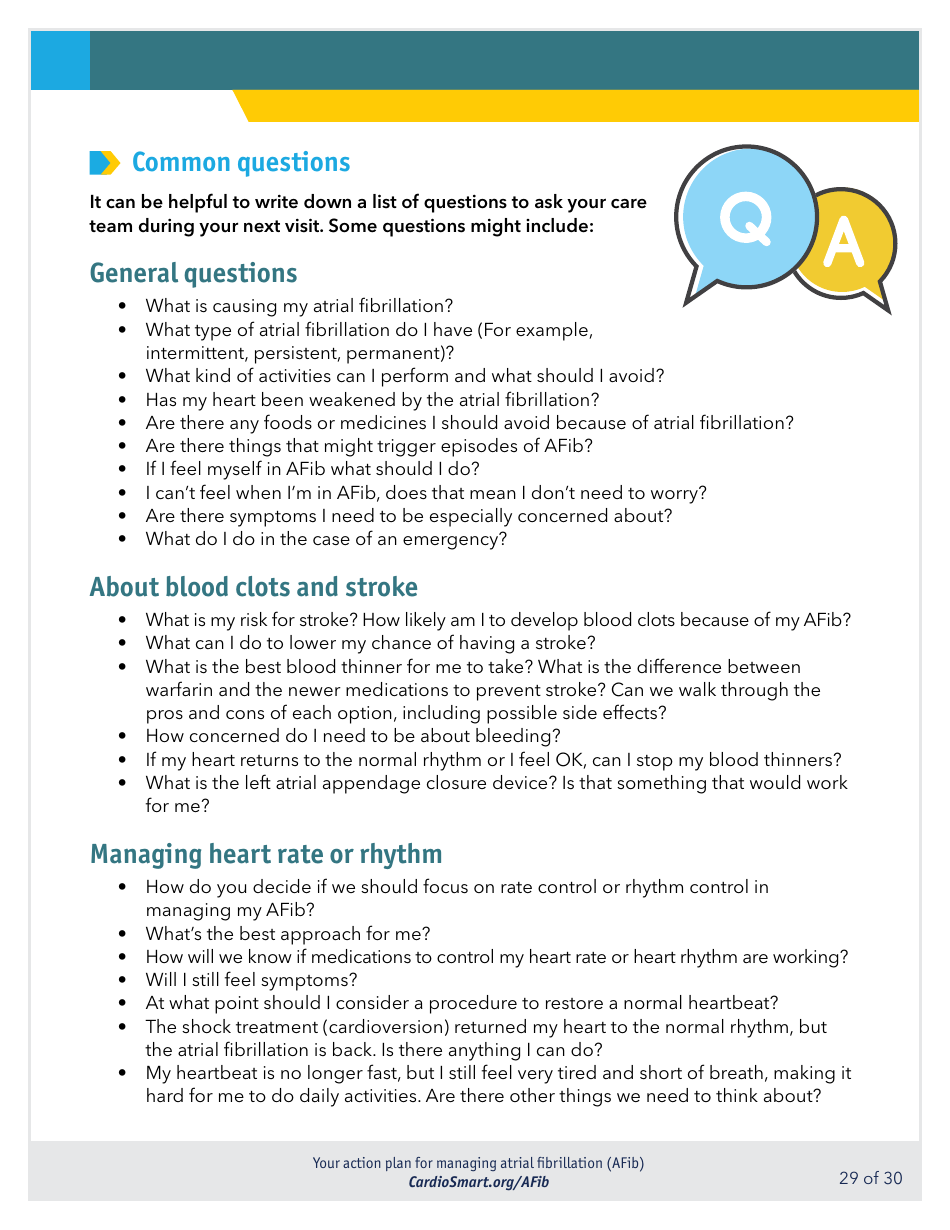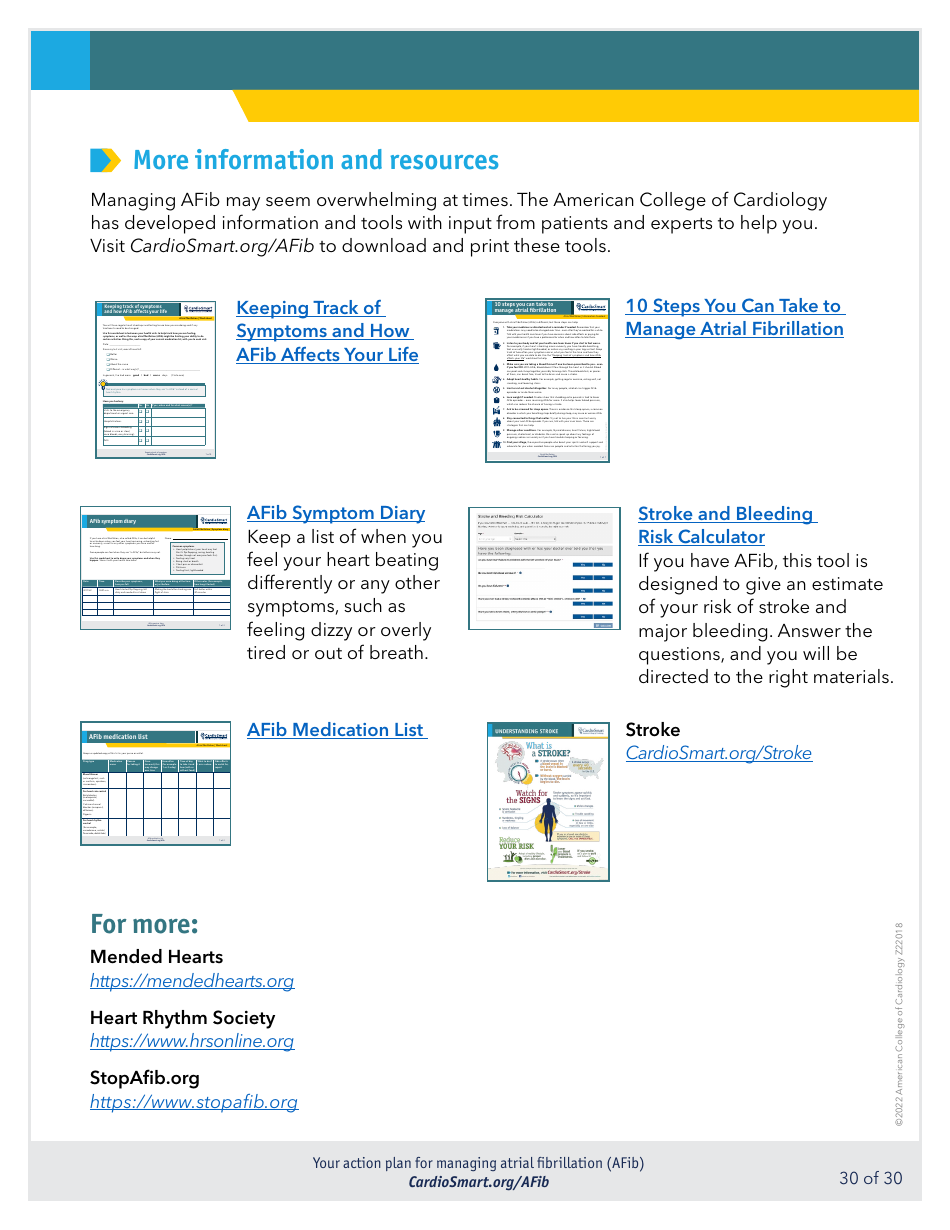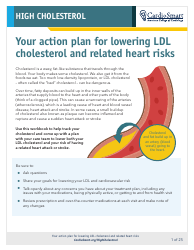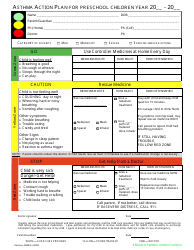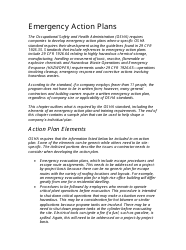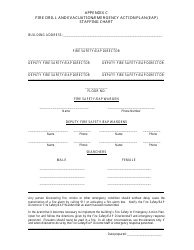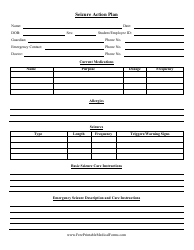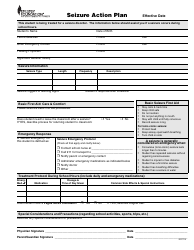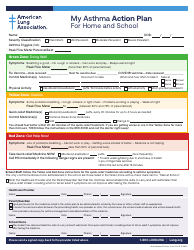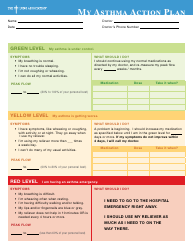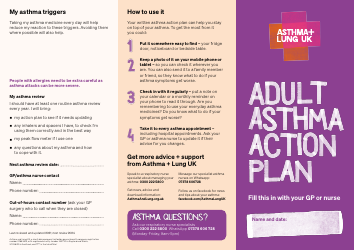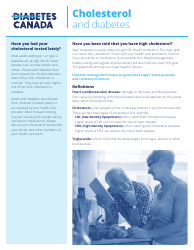Action Plan for Managing Atrial Fibrillation (Afib) - Cardiosmart
The "Action Plan for Managing Atrial Fibrillation (Afib) - Cardiosmart" is a document that provides individuals with atrial fibrillation (Afib) a structured framework to manage their condition. The plan includes details about understanding Afib, recommended medications, lifestyle changes, treatment options, and other interventions to reduce symptoms and improve health outcomes. It is essentially a tool to promote active participation by patients in their own care and to work effectively with healthcare providers.
FAQ
Q: What is Atrial Fibrillation (Afib)?
A: Atrial fibrillation, also known as Afib, is a heart condition where the upper chambers of the heart, or the atria, beat in an irregular pattern or quiver, which results in a rapid heart rate. It can cause poor blood flow and is associated with a higher risk of stroke, heart failure and other heart-related complications.
Q: What is Cardiosmart?
A: Cardiosmart is an educational program and resource provided by the American College of Cardiology. It provides tools, resources, and guidance to help individuals understand and manage their heart health.
Q: What is an action plan for managing Atrial Fibrillation (Afib)?
A: An action plan for managing Afib can include lifestyle changes, medications, and potential medical procedures. The plan will be unique to each individual based on their specific case and health status. It is typically developed with a health care provider or a team of medical professionals.
Q: What lifestyle changes can help manage Afib?
A: Lifestyle changes for managing Afib can include maintaining a healthy weight, eating a heart-healthy diet, quitting smoking, limiting alcohol and caffeine, getting regular exercise, managing stress, and getting adequate sleep.
Q: What medications are typically used in managing Afib?
A: Medications for Afib can include blood thinners to prevent clots and strokes, beta-blockers to control heart rate, and anti-arrhythmic drugs to restore and maintain a normal heart rhythm.
Q: What procedures are available for Afib management?
A: For some individuals, medical procedures for Afib may be necessary. These can include cardioversion, where an electric shock is used to reset the heart's rhythm, ablation procedures that use heat or cold to destroy the area of the heart causing the abnormal rhythm, or a procedure to insert a pacemaker to help the heart maintain a regular rhythm.
